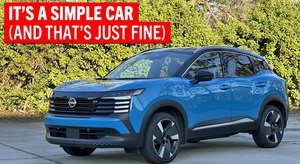so, I come at this from a different perspective/background of experience and knowledge. I'm not sure I can finesse the language correctly, such that people misunderstand my meaning; but I reckon I'll give it a try. My perspective is that in the US, "just because something is banned, doesn't mean it's not allowed".
During prohibition, when it was generally held that "consumption of alcohol effects us all, negatively... and thus should be banned"; my Great-Grandmother was granted a permit to brew beer at home. No, I don't have the permit... yes, I got this story second-hand from my now-deceased Grandmother. Nevertheless, this ethos was codified by Carter in 1976: That there exist a compelling reason to allow individuals the ability to produce and consume a regulated substance, outside the regulator scheme... so long that it does not cross the boundaries of a commercial enterprise.
The second example is probably the closer analog to this discussion. The CAA and now FAA required that aircraft have to be certified in order to access the Federally Regulated Aviation System. In the '40's, this effectively created a ban on private individuals constructing and certifying and flying their own aircraft... unless the constructor submitted to an inspection that was equivalent to what manufacturers (i.e. Boeing) went through before flying their prototype aircraft. Eventually, that was rectified via Congress, through the creation of the Experimental category, which does not have to meet the same certification standards that "normal" 'Part 23' aircraft have to be designed/built/certified to.
via this article:
" The official justification for permitting homebuilt aircraft was and still is education and recreation. "
Sleepydad was an EAA member, and partially completed a Evans VP-1... and pouring over old EAA magazines is non-trivially responsible for my completing college.
"the EPA turned a blind eye, until they couldn't" / "but, the EPA doesn't have a way to distinguish use" / "if they open regulation on one thing, they'll just get sued for preferential treatment"
I don't particularly agree with these arguments. I think it's more accurate to say that the EPA doesn't have the budget/resources, and I fully acknowledge that none of this is going to be rectified without something passing through Congress. However, my view is that the EPA's reasoning for regulating this has more to do with the recent GHG determination, than it has to do the previous regulatory ('turned a blind eye') scheme... based on the timing. The same GHG determination has lead to the EPA creating proposed rules for Aviation Emissions Regulation under the same guidance... and that applies to aircraft over 5700kg MTOW (which, in case you were wondering, is* a KingAir or bigger... which is pretty big from a 'personal aircraft perspective'). So, the argument that they can't treat some road users different than others, I feel is suspect... since that's exactly what they're doing with aviation.
So, there exists already the concept that individuals have a demonstrable and reasonable expectation to be able to create or modify vehicles for reasons of recreation, education, and experimentation; with the caveat that they limit the use of such creations, don't use them for commercial purposes, and potentially don't exceed a determinable maximum weight. If they do so, they agree to a less strict regulatory environment, which may mean increased to risk to them and the public. This pool (based on the number and flight hours of sub-5700kg aircraft burning low-lead gasoline without any emissions systems) is non-trivially large... and could be easily accommodated by a 5000mile yearly mileage limit, the presence of cats, and a tune that meets Federal Year 2000-emissions specifications. IMHO.
I think, though, there are probably a couple of main issues to actually having such a scheme passed.
One is, that this might turn into a turf fight between DOT, EPA, and the States.
Another, is that none of the "big organizations" that might fight this are 'consumer oriented'; so this concept is completely off their scope. Although, it's kind of surprising that a certain National auto association, and that big Car-Sporting Club, among other entities aren't realizing their own possible exposure in this... and attempting to band together in fighting for such a regulatory scheme being passed by Congress... which the RPMAct does not come close to addressing.


































